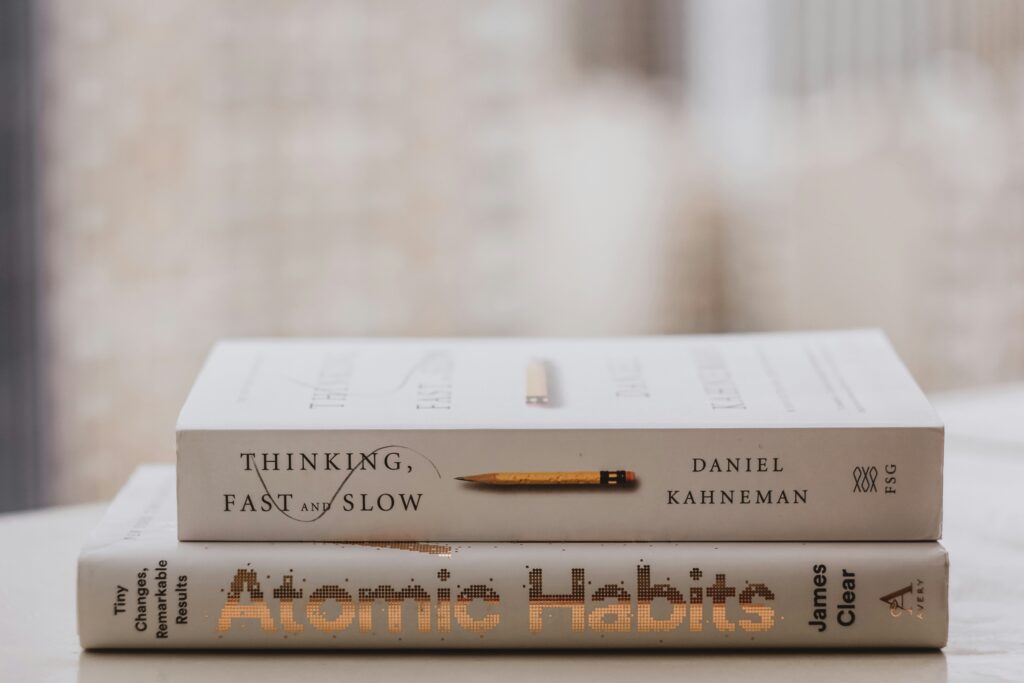“Growth is a skill, not a trait.”
What If Growth Is a Choice You Can Make Daily?
In 2000, a young woman named Sara Blakely stood in a Neiman Marcus bathroom with a hosiery prototype she had cut herself. She had just pitched her idea — footless pantyhose — to a skeptical buyer and knew that words alone wouldn’t sell it. So she slipped into a pair in the bathroom and walked back out to demonstrate how her product changed the look of white pants.
That product would become Spanx, and Sara would become the world’s youngest self-made female billionaire.
What made her different wasn’t access to capital or a background in fashion. It was how she thought about growth, failure, and possibility. Her father used to ask at dinner, “What did you fail at today?” — a question that taught her that trying and failing was a sign of progress, not defeat.
This way of thinking is known as a growth mindset — and it’s one of the most powerful mental frameworks for success in business, creativity, and life.
Whether you’re building a personal brand, scaling a startup, or simply navigating a career shift, understanding how to cultivate a growth mindset is your most underrated competitive advantage.
Growth Mindset vs. Fixed Mindset: What’s the Difference?
What separates the founder who bounces back from three failed startups and eventually builds a million-dollar brand from the one who quits after their first setback? It’s not just access to resources, luck, or talent — it’s mindset.
In a world where comparison is constant and perfectionism is praised, we often mistake achievement for identity. But what if your success isn’t about what you are, but about what you’re willing to become?
The concept of the growth mindset comes from the work of Stanford psychologist Dr. Carol Dweck, who studied how children responded to challenge and failure. She found that some children saw struggle as a sign they weren’t good enough, while others saw it as part of learning. A growth mindset is the belief that abilities and intelligence can be developed through effort, learning, and persistence. In contrast, a fixed mindset assumes these traits are static and unchangeable.
“In a fixed mindset, everything is about the outcome. In a growth mindset, it’s about the process.”
— Carol Dweck
Neuroscience supports this: our brains can rewire through effort and repetition thanks to neuroplasticity. This means intelligence, creativity, leadership — they’re not static traits. They’re dynamic capabilities we can develop.
Quick Comparison
| Growth Mindset | Fixed Mindset |
| “I can learn this with effort.” | “I’m just not good at this.” |
| Sees failure as feedback | Sees failure as proof of inadequacy |
| Loves challenge | Avoids challenge |
| Inspired by others’ success | Threatened by others’ success |
A 2022 Harvard Business Review study showed that founders with a growth mindset were 40% more likely to recover from setbacks and pivot successfully. For women — especially those founding companies, freelancing, or breaking into leadership — this mindset is not just helpful, it’s essential.
And yet, women often internalize failure more harshly. Perfectionism, societal expectations, and impostor syndrome can feed a fixed mindset, especially in high-pressure environments.
Before building a billion-dollar brand, Sara Blakely was selling fax machines door-to-door and was rejected repeatedly. She credits her growth mindset to her father, who asked at dinner, “What did you fail at today?” — reframing failure as something to be proud of.
“Failure to me became not trying, not the outcome.”
— Sara Blakely
This psychological shift empowered her to pitch her product to Neiman Marcus with no formal design experience — and succeed.
Growth Blockers: What’s Holding You Back?
Even if you intellectually believe in growth, psychological patterns can hold you back. Let’s identify — and dismantle — the most common ones.
• Perfectionism
Often celebrated in school or the workplace, perfectionism is a fear-based response. It’s rooted in the belief that if something isn’t flawless, it’s not worth doing — which keeps us from starting at all.
• Imposter Syndrome
A study by KPMG found that 75% of female executives have experienced impostor syndrome. This can lead to self-sabotage, underpricing, or overpreparing instead of launching.
• Fear of Failure
As philosopher Seneca said, “We suffer more in imagination than in reality.” Fear of failure is often fear of embarrassment, not of the consequences themselves.

How to Cultivate a Growth Mindset Every Day
The good news? Growth is not an identity — it’s a habit. You don’t need to be growth-minded. You need to practice it.
1. Reframe Your Self-Talk
Change “I’m bad at this” to “I’m learning how to do this.” Add “yet” to any limiting belief.
2. Use Journaling to Track Growth
Try these daily prompts:
- “What challenge did I face today?”
- “What did I learn from it?”
- “What can I try differently tomorrow?”
This builds self-awareness, the foundation of a growth mindset.
3. Praise Effort Over Outcome
Praise yourself or others for the process — not just the result. This builds motivation and long-term resilience.
4. Surround Yourself with Growth-Oriented People
Be around those who develop your thinking. Your environment shapes your identity. Choose collaborators, mentors, and peers who see possibilities, not problems.
“You are the average of the five people you spend the most time with.” — Jim Rohn
Real-World Growth Mindset
Reshma Saujani (Founder, Girls Who Code)
Reshma ran for Congress and lost. Rather than seeing this as the end, she used it to launch Girls Who Code, a nonprofit that’s taught over 500,000 girls computer science. Her TED Talk and book, Brave, Not Perfect, encourage women to value courage over flawlessness.
Jessica Alba (Founder, The Honest Company)
Starting with no CPG experience, Jessica Alba faced skepticism for launching a clean lifestyle brand. She built The Honest Company into a publicly traded brand worth nearly a billion dollars — because she learned on the go, adapted constantly, and believed she could grow into the role.
“You’re not supposed to know how to do it all. You learn by doing.” — Jessica Alba
You are not born with a growth mindset. You build it.
You build it when you try again after a failed launch.
When you pitch the client even though you’re nervous.
When you embrace feedback, not as judgment — but as data.
What you think, you become.
Your Growth Mindset Challenge:
Write down one area where you feel stuck.
Ask yourself: What would I do if I believed I could improve with time, support, and effort?
Do the smallest version of that today. Action builds belief.

Tools & Resources to Build a Growth Mindset
🧠 Must-Read Books:
- Mindset by Carol Dweck
- Grit by Angela Duckworth
- Atomic Habits by James Clear
- Brave, Not Perfect by Reshma Saujani
📱 Helpful Apps:
- Notion (habit & learning trackers)
- Headspace (mindfulness and mental reset)
- Reflectly or Day One (for mindset journaling)
🎧 Podcasts for Growth:
- How I Built This (founder stories)
- The Mel Robbins Podcast
- We Can Do Hard Things by Glennon Doyle

Leave a Reply